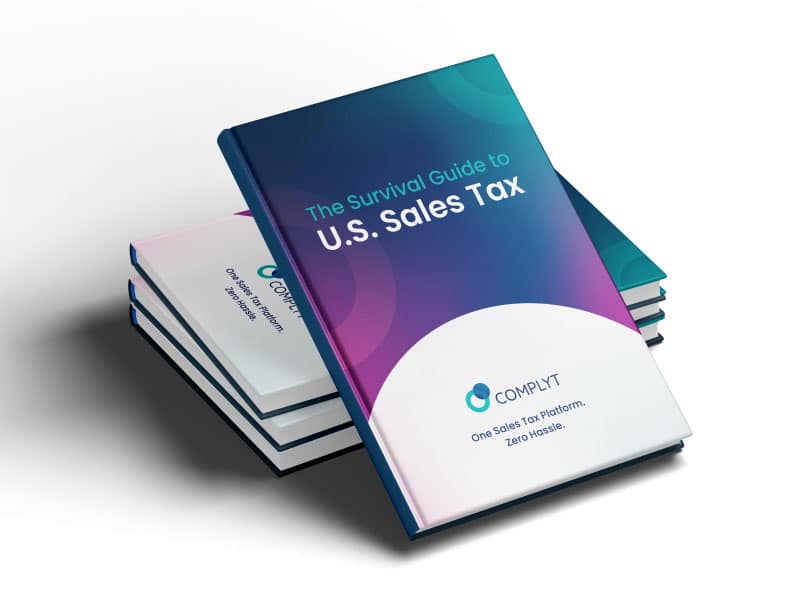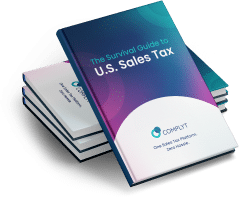What is the sales tax rate in Maine?
The sales tax rate in Maine is currently 5.5% for tangible personal property and taxable services.
However, a few transactions are subject to their own unique sales tax rates:
- 8% on the sale of prepared food and alcoholic drinks sold in certain establishments
- 9% on specified living quarter rentals
- 10% on the short-term rental of specific vehicles
Municipalities in Maine do not have the authority to impose additional local sales taxes, so the statewide rate is the only sales tax rate you will need to consider in most cases.
Sales Tax Maine: When should your business collect Sales Tax?
Businesses are required to collect sales tax from customers as soon as they have established a physical or economic presence in the state, referred to as “nexus.”
While this begins with having a physical location, such as an office, warehouse, or store, it also includes activities like having sales representatives or performing services within the state and the number of transactions made within a state.
Maine Physical Sales Tax Nexus
If your business has a physical presence in Maine, you’re required to collect sales tax from customers in the state.
Sales Tax Physical Nexus checklist for Maine
Here are some factors that can establish physical nexus in Maine:
- Owning or leasing property in the state
- Having employees, agents, or independent contractors in the state
- Storing inventory or merchandise in the state
- Providing services in the state
- Maintaining a temporary or permanent office in the state
If your business meets any of these criteria, you have a physical nexus in Maine and are required to collect and remit sales tax.
Maine Economic Nexus Threshold: Revenue, Thresholds and Transactions
Maine established economic nexus requirements for remote sellers following the Supreme Court decision in South Dakota v. Wayfair, Inc. In Maine, a remote seller has economic nexus if they have gross sales exceeding $100,000 or conducts 200 or more separate transactions within the state in the current or previous calendar year.
Once you’ve met these thresholds, you’ll need to register for a Maine sales tax permit and start collecting and remitting sales tax on your sales to customers in the state.
Which services are taxable in Maine?
In Maine, many services are subject to sales tax. Here are some examples of taxable services in the state:
- Installation, maintenance, or repair services
- Rental of tangible personal property
- Telecommunications services
- Fabrication services
- Digital products
It’s important to note that not all services are taxable in Maine, so it’s essential to check the Maine Revenue Services website or consult with a tax professional to determine if your specific service is subject to sales tax.
Maine Sales Tax on Products: How to Calculate What Your Business Should be Charging
In Maine, sales tax is based on the destination of the sale. This means that the tax is applied at the rate of the location where the buyer takes possession of the item or where it is shipped to. As the state has a uniform rate of 5.5% for most goods and taxable services, this calculation is relatively straightforward. However, prepared food, short-term lodging, and certain rental vehicles are taxed at 8%.
To calculate the sales tax, simply multiply the total sale amount by the applicable tax rate. For example, if you sell a product for $100, the sales tax would be $5.50 (5.5% of $100).
How much is Maine clothing tax?
In Maine, clothing is generally considered a necessity and is exempt from sales tax. However, certain luxury items such as furs and jewelry are not exempt and are taxed at the standard rate of 5.5%.
Maine Online Sales Tax: Are SaaS and Digital Services Taxable?
Maine imposes a sales tax on digital products, including streaming services, digital books, music, and games. However, Software as a Service (SaaS) is generally not considered a taxable digital product.
SaaS Sales Tax Maine: Does my Business Need to Charge Sales Tax for SaaS in Maine?
As of now, Maine does not impose a sales tax on SaaS. The question of SaaS taxability is an ever evolving one. So it’s important to always check with the Maine Revenue Services for the latest regulations regarding taxation of SaaS and digital services, because Maine SaaS sales tax may be a compliance box to tick off one of these days.
How can a business get a sales tax permit in Maine?
To get a sales tax permit in Maine, you can apply online through the Maine Revenue Services website. You’ll need to provide information about your business, such as your legal business name, address, and EIN or SSN. Once you’ve submitted your application, it typically takes a few weeks to receive your sales tax permit.
Collecting Sales Tax in Maine as a Business
Once you have a sales tax permit, you can begin collecting sales tax from your customers in Maine. Remember to collect sales tax at the rate of the buyer’s location and keep accurate records of all transactions.
Maine Tax Return Due Dates Explained
Maine requires businesses to file sales tax returns on a monthly, quarterly, or annual basis, depending on your sales volume. Most businesses file monthly, but those with less than $100 in sales tax per month may file quarterly or annually.
What is the required frequency for sales tax returns in Maine?
Your filing frequency is determined by the amount of sales tax you collect. If you collect less than $100 per month, you can file annually. If you collect between $100 and $1,199 per month, you can file quarterly. If you collect $1,200 or more per month, you must file monthly.


